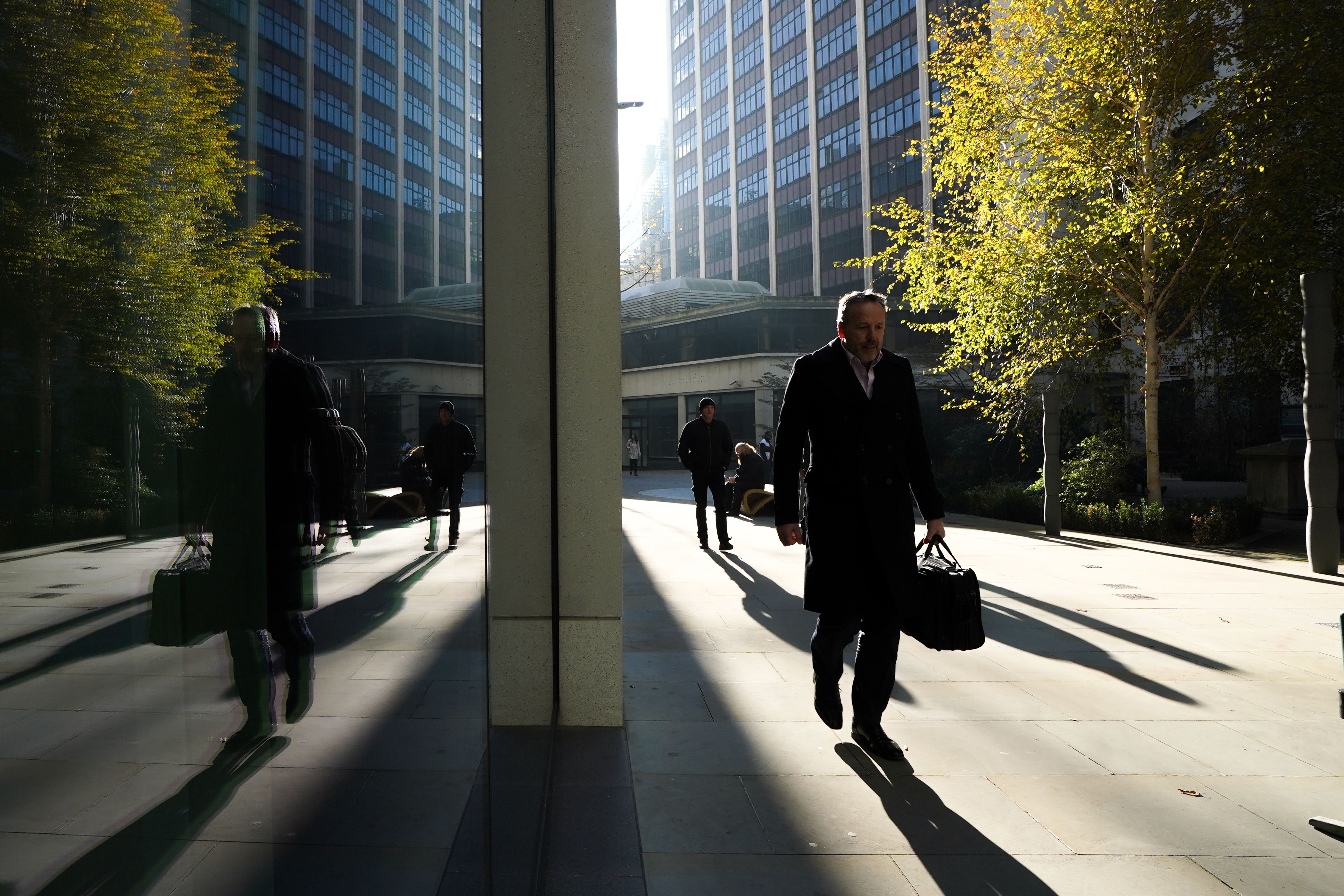Wage growth cools further but still outstripping inflation – ONS
UK average regular earnings, excluding bonuses, increased by 6.6% in the three months to November, the Office for National Statistics said.

Your support helps us to tell the story
From reproductive rights to climate change to Big Tech, The Independent is on the ground when the story is developing. Whether it's investigating the financials of Elon Musk's pro-Trump PAC or producing our latest documentary, 'The A Word', which shines a light on the American women fighting for reproductive rights, we know how important it is to parse out the facts from the messaging.
At such a critical moment in US history, we need reporters on the ground. Your donation allows us to keep sending journalists to speak to both sides of the story.
The Independent is trusted by Americans across the entire political spectrum. And unlike many other quality news outlets, we choose not to lock Americans out of our reporting and analysis with paywalls. We believe quality journalism should be available to everyone, paid for by those who can afford it.
Your support makes all the difference.Wage growth in the UK has slowed to the lowest rate for 10 months and there are further signs that the jobs market is cooling, according to official figures.
UK average regular earnings, excluding bonuses, increased by 6.6% in the three months to November, down from a revised 7.2% in the previous three months, the Office for National Statistics said.
It is the lowest rate since the three months to January last year and one of the steepest falls in earnings growth since during the pandemic.
The latest data could give Bank of England policymakers further reassurance that higher interest rates are working their way through the economy, reinforcing expectations that they will begin cutting borrowing costs later this year.
The overall picture continues to be broadly stable, with the unemployment rate unchanged and the employment rate up slightly on the previous three months.
However, when taking into account the effect of Consumer Prices Index (CPI) inflation, pay lifted 1.4% over the latest period.
It means that real wages have been rising for five months as the cost-of-living crisis eases.
Chancellor of the Exchequer Jeremy Hunt said: “It has been tough for many families recently, but with inflation now falling and the economy gradually returning to growth today’s continuing rise in real wages will offer further relief.
“On top of this the cut in national insurance contributions will get more people back into the jobs market, not just supporting economic growth but saving a typical two-earner household around £1,000 this year.”
Meanwhile, the number of job vacancies fell by 49,000 over the three months to December to 934,000, marking the 18th period in a row that openings have fallen and the longest run of falls ever recorded.
The rate of UK unemployment remained unchanged at 4.2% in the three months to November.
But more real-time data showed the number of UK workers on payrolls fell by 24,000 to 30.2 million for December, compared with November, although the ONS cautioned this was subject to revision.
Liz McKeown, the ONS’s director of economic statistics, said: “The overall picture continues to be broadly stable, with the unemployment rate unchanged and the employment rate up slightly on the previous three months.
“Job vacancies fell again, with the retail area seeing the biggest fall. However, the overall number of vacancies still remains above its pre-pandemic level.
“November saw the lowest number of days lost to strikes for 18 months, driven by a big drop in the health sector.
“While annual pay growth remains high in cash terms, we continue to see signs that wage pressures might be easing overall.
“However, with inflation still falling more quickly, earnings continued to grow in real terms.”